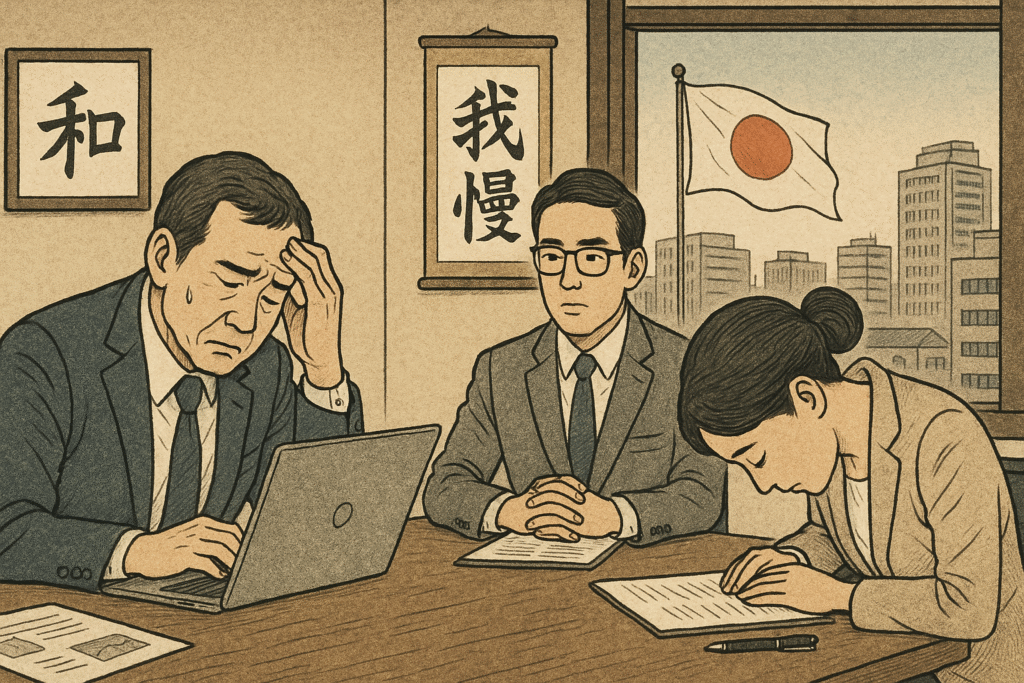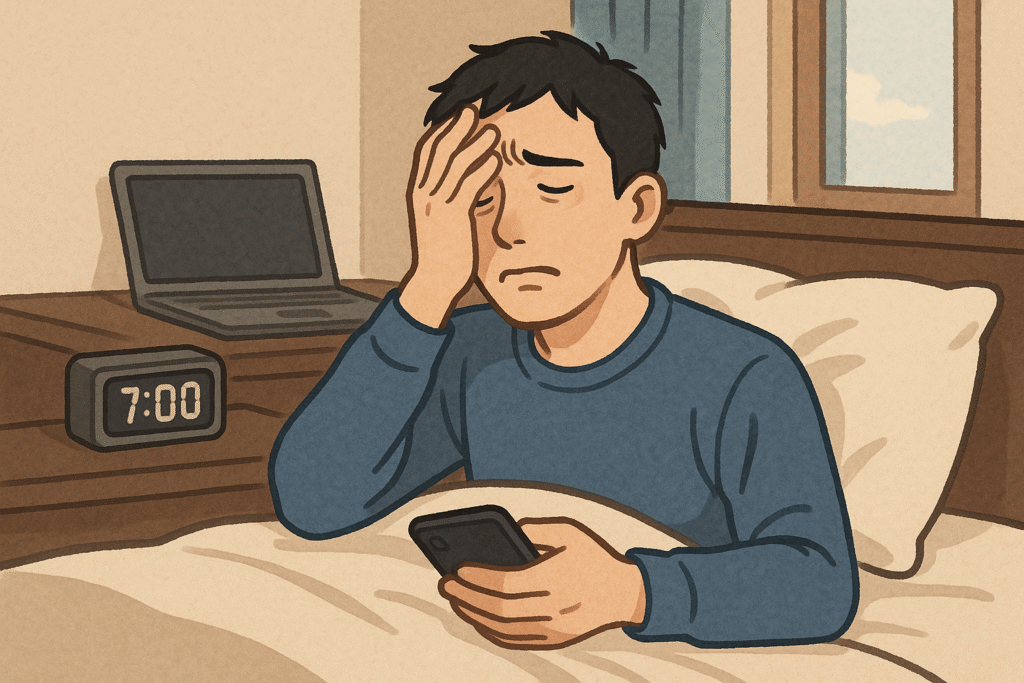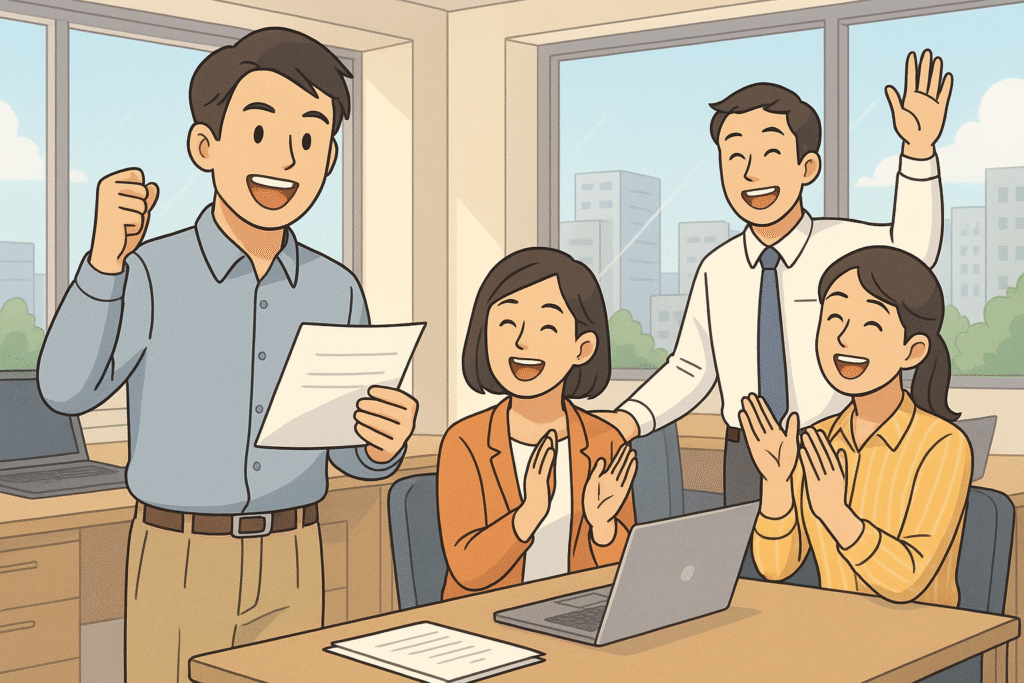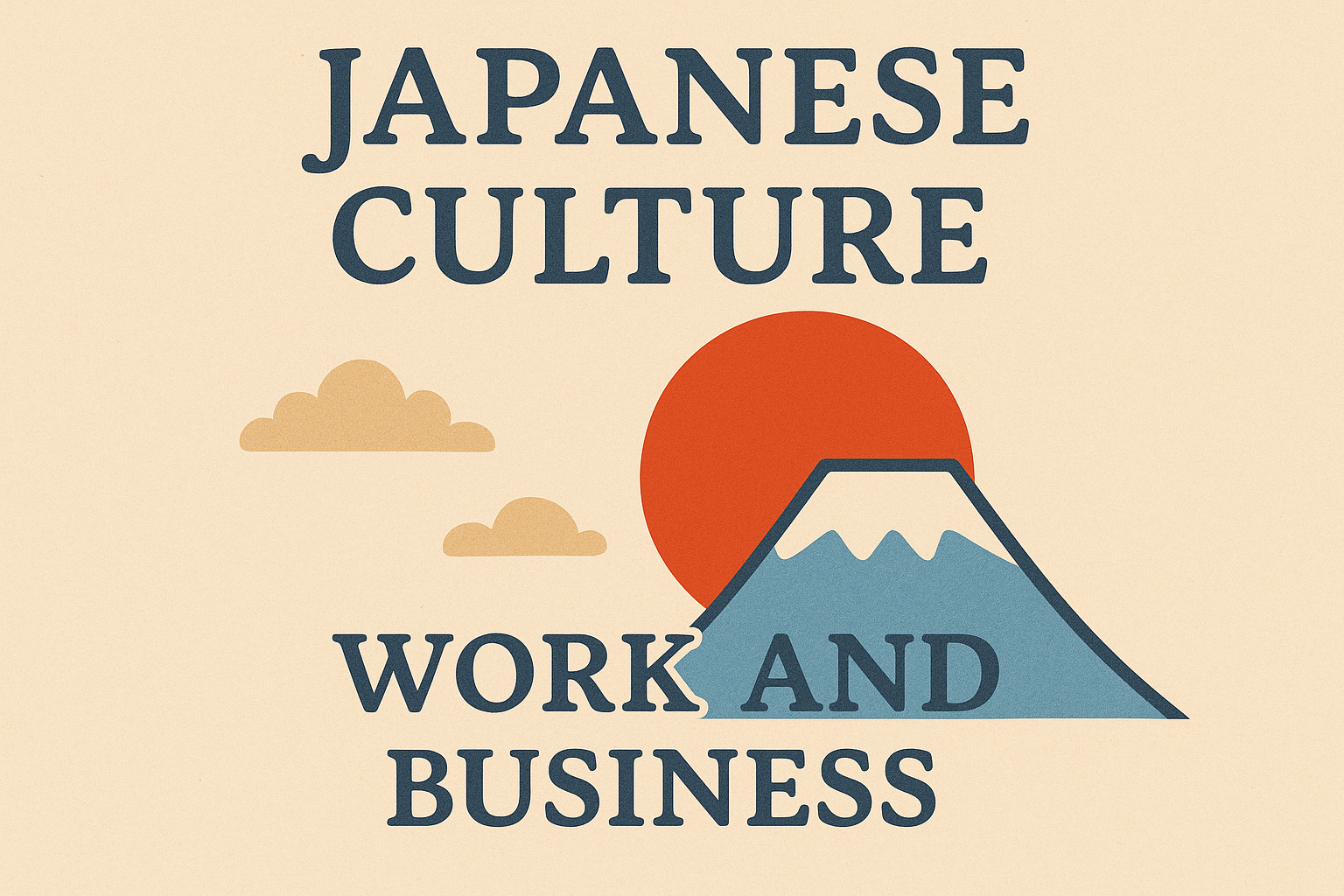In Japan, even a single day off work can trigger intense feelings of guilt for many professionals. Why does this happen? Understanding the cultural and historical context behind this phenomenon is essential for foreigners living and working in Japan. In this article, we explore the roots of Japan’s “duty-first” mentality, share a real-life story of a Japanese engineer, highlight generational shifts, and offer practical advice for balancing empathy and well-being in this unique environment. (Related article in Japanese)
- The Cultural and Historical Roots of “Duty First” in Japan
- Why Many Japanese Professionals Feel Guilt When Taking Sick Leave
- A Real Story: Personal Battle With Guilt
- What Foreigners Should Know: Navigating Japan’s Work Culture
- Practical Tips for Foreign Workers Living in Japan
- Conclusion: Building Resilience Through Understanding
The Cultural and Historical Roots of “Duty First” in Japan
Japan’s work culture has evolved over centuries, shaped by Confucian values, feudal loyalty, and modern corporate discipline. From the Edo period, diligence and loyalty to one’s group or master were essential virtues. In the postwar era, this transformed into an intense corporate culture where employees were expected to devote themselves entirely to their company, often receiving lifetime employment in return.
Even today, these cultural threads remain strong. Concepts like gaman (enduring hardship) and wa (group harmony) influence behavior in the workplace. Employees often prioritize not disturbing group harmony over their own well-being, making absence from work feel like a disruption rather than a right.

International comparisons reveal how distinctive this mindset is. According to OECD data, Japan consistently ranks among the countries with the lowest paid leave utilization rates. In contrast, workers in many Western countries, such as France and Germany, routinely use nearly all of their allotted vacation days without social stigma. In those societies, taking leave is seen as a normal and even productive way to recharge.
Paid Parental Leave: A Detailed Look at Approaches Across OECD Countries
Why Many Japanese Professionals Feel Guilt When Taking Sick Leave
Several psychological and social factors contribute to the guilt Japanese workers feel when taking time off:
- Collective Responsibility: Absence is perceived as increasing colleagues’ workloads.
- Dedication as Identity: Professional worth is closely tied to visible contribution and availability.
- Unspoken Expectations: Even without explicit rules, cultural norms discourage absence.
This guilt is particularly acute among conscientious professionals and is most pronounced in the “middle management generation.” These mid-career employees often bear a dual burden: meeting the demands of upper management—who may still hold traditional views on dedication—and supporting younger staff, who are increasingly embracing work-life balance.
Younger generations in Japan are gradually shifting attitudes. Government campaigns promoting “Premium Friday” and encouraging paid leave usage have found greater acceptance among younger workers, who are better at setting boundaries and taking rest when needed.
Yet middle managers often remain trapped between old expectations and new realities. They are expected to be role models, maintain team performance, and support subordinates while rarely finding space to care for themselves. This explains why, even as Japan’s overall paid leave utilization rate improves, middle managers continue to feel exhausted and unable to take proper time off.
A Real Story: Personal Battle With Guilt
Y-san, a respected mid-career engineer at a Tokyo IT company, is known for meticulous designs and mentoring junior colleagues. Despite this, when he woke up one morning with a mild fever, he struggled emotionally with the decision to stay home.
“It was just a day lying in bed, but I felt so guilty,” he admitted.
Throughout the day, worries filled his mind:
- What if a project issue comes up and I’m not there?
- What if my absence reveals a mistake I made?
- Am I proving that I’m not essential?
Even though his team managed just fine, he felt an unexpected emptiness upon returning—as if realizing the company could function without him diminished his sense of value.

But this experience became a turning point. After feeling how much clearer and sharper his mind was after rest, he reflected:
“Taking care of myself allowed me to perform better. I wish I had rested sooner.”
His experience captures the psychological conflict faced by many Japanese middle managers today: caught between cultural expectations and personal well-being.
What Foreigners Should Know: Navigating Japan’s Work Culture
For foreigners working in Japan, understanding this cultural landscape is key to building good working relationships while maintaining personal well-being:
- Appreciate the cultural lens: Japanese colleagues may not openly express discomfort but feel strong internalized duty.
- Be mindful of generational differences: Younger employees may seem more comfortable taking leave, while middle managers may carry heavy burdens silently.
- Communicate with courtesy and gratitude: When you take leave, inform your team properly and thank them for their support.
- Lead by example: Demonstrate that healthy work-life balance can enhance team performance.
Practical Tips for Foreign Workers Living in Japan
Inspired by Y-san’s experience, here are tools and techniques to help balance dedication and self-care:
- Use a Time Timer MOD: Visually structure work and rest to create boundaries.
- Wear an activity tracker with stress monitoring: Maintain awareness of physical and mental health.
- Invest in ergonomic tools like a trackball mouse: Reduce physical strain during long desk hours.
Behavioral strategies:
- Practice the Pomodoro Technique: Alternate focused sessions with deliberate breaks.
- Reframe commute time as mental downtime: Reflect, listen to podcasts, or simply breathe.
- Improve diet quality: Choose balanced meals even at convenience stores, paying attention to protein, vegetables, and carbs.
- Delegate when possible: Avoid overburdening yourself by sharing tasks and building trust.
- Establish a pre-sleep routine: Disconnect from screens, take a warm bath, or stretch to improve rest and recovery.
Conclusion: Building Resilience Through Understanding

The guilt surrounding time off in Japan is deeply rooted in centuries-old values of duty and harmony. While younger workers increasingly embrace healthier work-life balance, many middle managers remain caught between traditional expectations and emerging norms, often at personal cost.
For foreigners, recognizing this nuance is vital—not only to integrate smoothly but to practice empathy and protect personal well-being.
Y-san’s story shows that true dedication is not about constant presence but about returning to work refreshed and ready to contribute meaningfully. In any culture, rest is not a weakness—it’s a source of resilience.



Comments